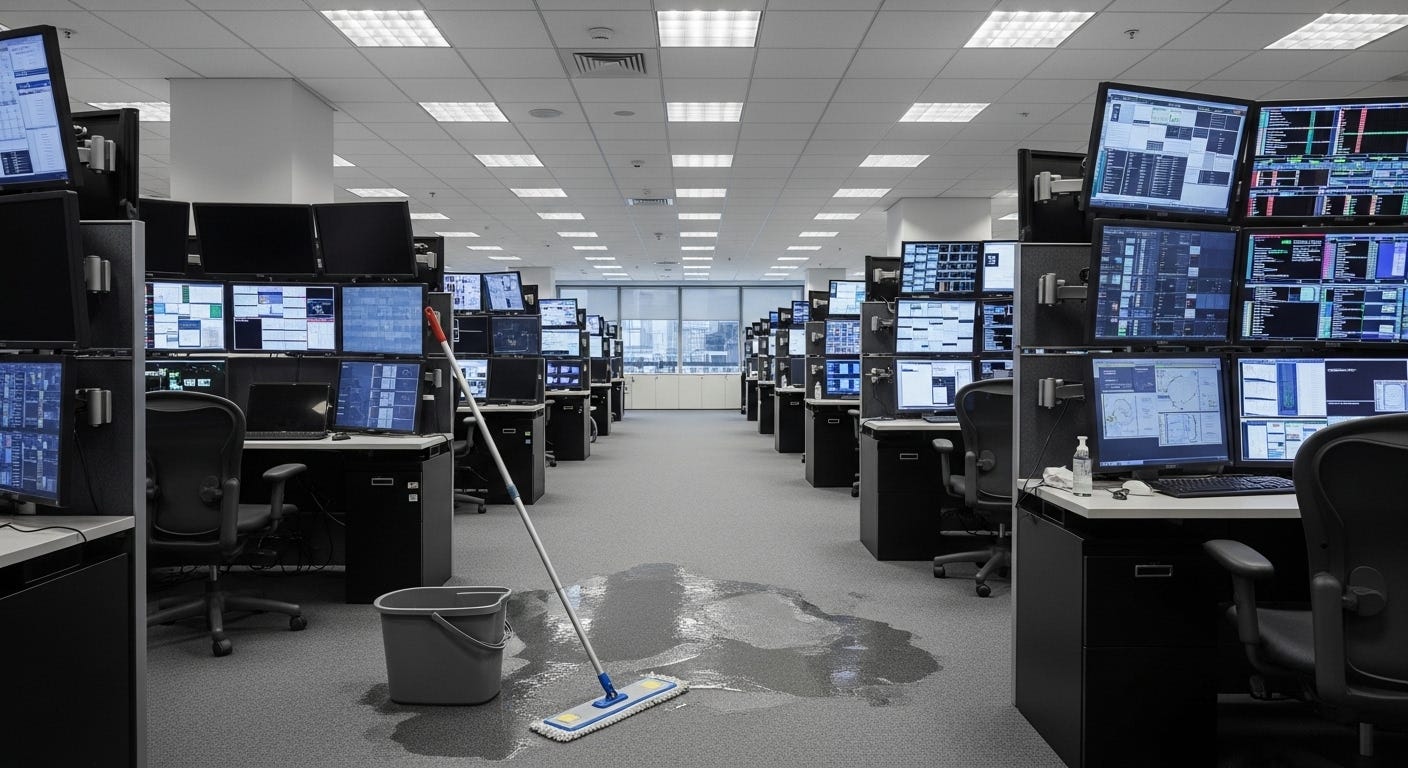Disclaimer: The views and opinions expressed in this blog are entirely my own and do not necessarily reflect the views of my current or any previous employer. This blog may also contain links to other websites or resources. I am not responsible for the content on those external sites or any changes that may occur after the publication of my posts.
End Disclaimer
I told this story to my kids recently.
It popped into my head again as I was thinking about a presentation I give to our crop of interns every summer.
My kids thought that maybe I should write it down.
Maybe being the operative term.
Something about “trapping my failures in amber” forever.
I was (very)bad at interviewing in the beginning of my career- something I’m cognizant of whenever I’m on the other side of the table now giving the interview.
Like a lot of things, when you do get enough turns up at bat, you build out the muscle and sort of get to experience the probability distribution of things that can happen.
But in the beginning the possibilities of ways to crash and burn are unbounded.
Here goes…
There is a version of my life where this story works out- an alternative timeline where I’m writing this article from my beachfront compound in some tax-advantaged locale.
This is not that story.
I was about 23, working for an international bank on their proprietary trading desk, helping a Portfolio Manager manage about 600 million dollars in discretionary investments/trades.
One day, I get an out-of-the-blue call from a headhunter asking if I would be interested in speaking with the #2 at a well known and, at the time, gigantic hedge fund.
The fund was famous for making a huge bet against the REDACTED….
The fund’s name isn’t important, except that I would have considered cutting off my pinky toe (but not my pinky finger- I don’t know where this logic comes from) to work there.
The opportunity had tremendous “climbing-up-the-lift-hill on a roller coaster” type potential energy.
Possibilities with upside optionality.
My hands were sweating by the time I hung up the phone with the recruiter.
The role was not explicitly described, but I knew that it would involve trading and managing a lot of money and risk.
I arrived at the office and the receptionist seated me in a room with a couple of chairs facing each other.
The #2 came into the room holding a copy of my resume and looking down at it. He sat down across from me and thanked me for coming.
I don’t remember a lot of the beginning of the interview. I know he asked about what type of products I traded, how much, frequency of my trading, etc.
Probably threw in a question about how high my Sharpe Ratio was.
(Sharpe helps to establish a standardized shorthand to talk about trading and portfolio management. The metric measures the unit of return per unit of volatility/risk for a trading strategy. E.g.- a “1” Sharpe is not good , a “3” Sharpe, depending on the type and frequency of the trading, well, now we’re getting somewhere)
I’m there sitting in the chair.
Complete imposter syndrome.
Why am I here?
There must be better candidates than me.
That loop kept replaying in my head- that he was going to catch me and my subterfuge would finally be over.
And then he did catch me.
“So, I see here that you do pairs trading. How do you know when a trade has gone against you enough to unwind it?”.
Totally appropriate question.
A soft ball, actually.
What causes you to fundamentally change your mind about a trade you have on?
It's usually a combination of some event that causes your underlying thesis to change and/or maybe some price movement beyond a bound you are comfortable with.
For dual-class pairs trading (aka dual-class share arbitrage), you pick a company that has multiple share classes. Happens a fair amount with media companies like Fox, Discovery, News Corp. One usually has more voting rights or something that causes it to trade at a premium to the other class. The premium generally should stay within some prescribed bounds.
You buy the one share class and short(sell) the other.
When the difference in the pair exceeds the bounds or falls far below the bounds you generally bet the trade to go the other way.
When the rubber band gets stretched out far enough, you bet that it will snap back into place.
This rubber-band trade is an example of mean reversion trading.
So anyway, back to the interview.
My mind completely erases, a clean Zamboni sheen(band name?).
#2: “How do you know when a trade has gone against you enough to unwind it?”
Me: “Umm, 5?”
#2: “Did you just say the number ‘5’?”
I realized at this point that the interview was effectively over.
I tried to explain why I blurted out “5”- not even “5 dollars” or “5%” (2 different ways to think about a price spread), but just “5”.
In the middle of my rambling, in the muddled miasma of my thought process, I saw what amounted to a climbing hold just out of my reach that would require me to fling my entire body in one dynamic motion and leave the safety of any current holds I had- a move referred to in rock climbing as a “dyno”.
I went for it.
Me: “Mr. #2 . It’s apparent that this interview is clearly not going well. I’m better than I’m representing myself. I would do anything to get the opportunity to work for this company. I would mop the floors to get to work at this company .”
Without skipping a beat #2 looked at the floor beneath our feet and said:
#2: “Well, we have carpeted floors here, so you would be vacuuming”
That was that.
#2 was even cool enough to have a funny comeback to my failed dyno and to look me in the eyes as I fell.
My very own Hans Gruber moment.
The interview was over.
He thanked me for my time and said we would be in touch.
The whole thing couldn’t have lasted more than 12 minutes.
I never heard back from him or anyone else at the hedge fund.
There you have it.
A beautiful, clean failure.
Sometimes you do yourself a favor by inadvertently (re)setting the most incredibly low bar you can possibly manage.
I never had another interview as bad as the “5” again. (I had one that was worse trying to get a job out of college, but another story for another time.)
Going out for and blowing a hedge fund interview is definitely a high-quality, first-world problem to have, but it still feels like a fail.
If by any chance, lightning strikes and #2 reads this- thank you for being nice.
Thanks for being human when others would have taken the opportunity…not to be.
Hopefully our paths will cross again and I can thank him for what I learned that time I offered to mop his hedge fund’s carpets.
Don’t slow down.






